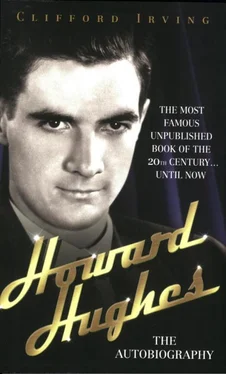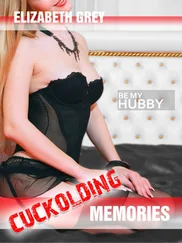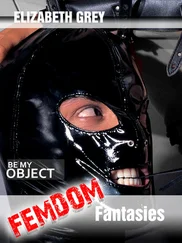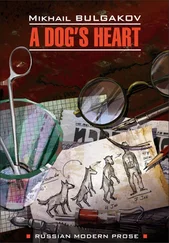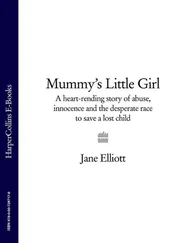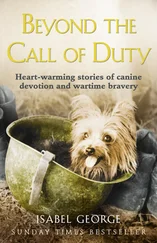When we met for the second series of interviews the mood was markedly different. Again they took place in my hotel or motel room. The fact that it was a second meeting, a reaffirmation of mutual purpose, was a powerfully positive factor. On a simpler level, we were glad to see each other again and said so. But as soon as the tape recorder was in position and I reached for the start button, Hughes snapped out at me. He had read and brought with him the transcript of the Bahama interviews. ‘You baited and bullied me,’ he accused. ‘You led me into saying things I didn’t mean to say. You kept interrupting and contradicting me. That’s got to stop.’
We argued, and finally I said, ‘Okay, if I’ve done that I was unaware of it, and I apologize. I certainly won’t do it now. All I ask from you is the truth.’
‘That’s what I’m going to give you,’ he said sharply. ‘No more pussyfooting around.’ He had clearly made up his mind to something.
In the course of the next weeks he opened up; but it was a hard, painful flowering. Think how hard it is for any man to speak and tap at the truths of his own experience with a blind man’s cane: because in that world of self-revelation we are all equally blind, or else we lie and wear masks we’ve collected throughout the years – collected, tested and saved for such occasions. But he tried from the beginning to get it right, get it straight, without the benefit of mask or mummery. He would start to speak, stop, then say, ‘No, that’s bullshit. Scrub that, don’t transcribe it. Let me start again.’ And he would do it again, and if he didn’t get it right he would frown and say, ‘We’ll come back to that. Remind me, will you, please?’ He wasn’t aiming to polish his words but to plumb his memory better; not so much to be analytically deep, but more to strike the mark as though he were an archer taking aim at a far target and not so sure his hand was steady or his sight good enough anymore to isolate it from the background. He was archer and target both; and that was why it hurt, more so when he struck the mark. A hard flowering, I said, and one that had to be respected. Again and again he came to our meetings in a fractious mood, skittery and prudent and startled like a virgin when the instrument of violation makes contact. He was violated by his own momentum to shatter that hymen of superficial memory, common to us all, stretched tightly across the past. We scrapped and argued all the way, then and later, because it was easy for him to confuse my pressuring him with his own need to get to the root and gut of things. Random exchanges taken from the transcribed interviews, verbatim – and not included in the text of the autobiography – will give an idea.
H: …I have to protect myself from myself. Do you understand?
C: Yeah, I understand. I think.
H: You think – well, never mind. That’s the way I am and I don’t give a goddamn what you think, or anyone else. Don’t be offended. I’m just being frank.
H: It’s a sexually dirty story, and she’s still a famous actress, so I’m not sure I want it included in the book. I’ve given you enough dirt already. Let’s just say… this puts me in an awkward light, that’s the trouble.
C: Well, you can tell it and then we’ll—
H: Now don’t nag me and then sulk. My God, I’d hate to be married to you. [And then he told me the story.]
There were lighter moments too. The following dialogue took place during the first taping of the June sessions; to understand the references you have to know that Hughes for many years wore tennis sneakers instead of shoes. He gives the true reason in the text of his autobiography, but for nearly two decades the habit made him the butt of jokes and reinforced the image of his eccentricity.
He was discussing the beginning of his commitment to build a flying boat, the Spruce Goose or HK-1, at the time when Henry Kaiser was his partner:
H: And so Henry and I set up this little paper corporation. We put up a few thousand dollars apiece. Henry was very useful to me, not only because of his know-how but because he got along with those guys in Washington. They already had me on their shitlist… Wait a minute. I’m burning up with curiosity and I have to ask you. Is that supposed to be a joke, or what?
C: No, I have to wear them. It’s an old pair of tennis sneakers that my wife cut down for me. I have a sore here on the top of both feet from the sandals I wore in Nassau. The sandals I was wearing were new, and the strap opened the skin. Remember I was wearing a bandage? When I got back to Ibiza it was infected and I couldn’t even wear shoes – the pressure kept making the infection worse.
H: You’ve got to be careful with something like that.
C: My wife convinced me it needed air, and so she cut down these sneakers and I’ve been wearing them ever since, everywhere I go. See?
H: No, no, that’s all right. Don’t come closer.
C: Why did you think I was wearing them?
H: I thought it might be a joke. Some kind of private way of making fun of me.
The second batch of interviews were by far the most productive and covered the most ground in terms of time and depth. Hughes backtracked now and then to re-tell stories of the early years he felt he had not satisfactorily covered during the first sessions. He sometimes referred to notes, which I rarely had the opportunity to see, and we would often discuss in advance the territory we wanted to cover during a sitting. This time too I was better prepared, having plowed through all the available material on his business life: the machinations at RKO, Hughes Tool, Hughes Aircraft and TWA. Dick Suskind had joined me for part of the trip, backstopping me with information and going over my notes after each session to see what might have been omitted by Hughes and what questions I might ask in the next session to fill in those gaps. His presence was invaluable to me; but at one moment it caused a near-disaster.
Howard, who was invariably late, had arranged to contact me at an out-of-the-way motel near Palm Springs, California. ‘I’ll be there between ten o’clock and midnight,’ he said. Suskind and I were sitting in my motel at about 9:30 p.m., playing chess, when there was a knock on the door. ‘It can’t be him,’ I said, and opened the door. The scene was memorable. Suskind, who eats organic food, lifts tons of weights each day at whatever gymnasium is available, stands 6’3’ tall, weighs 280 pounds and looks like a veteran NFC offensive tackle, is obviously not the sort of man who can pretend to be a waiter delivering an ice bucket. Hughes knew of his existence but had said he didn’t want to meet him.
The three of us stood awkwardly by the door. Finally I said: ‘This is Dick Suskind. He’s doing some research for me, uh, on the project…’
Howard stood for a moment, then said quietly, ‘Well, I suppose you know who I am.’
It was Suskind’s moment to claim ignorance and make a swift getaway, but he missed the signal. He cleared his throat uncomfortably. ‘Yes, I do,’ he said, ‘and I’m glad to meet you, Mr. Hughes.’ He started to extend his hand, then drew it back quickly; he’d remembered my telling him Hughes was not a keen handshaker.
The man stood for a few agonizing seconds – agonizing for me, in any case. I can see now that we must have looked like three miscast characters in an Oscar Wilde drawing-room comedy; we had all forgotten our lines and a hush had fallen over the theatre. He finally reached deeper into his pocket. His right hand came out with a cellophane bag, which he pushed toward Suskind. ‘Have a prune,’ he said.
Dick took and examined a prune. ‘That’s an organic prune, isn’t it?’
‘Correct,’ Howard said. ‘The other kind are poison.’
Читать дальше
